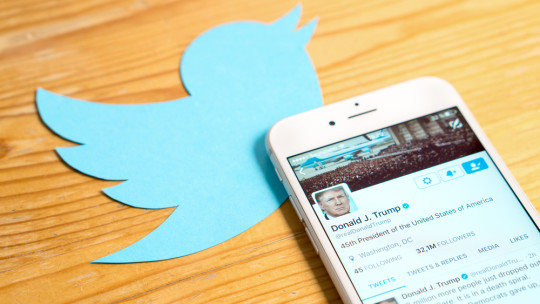Twitter, Trump, and the Political Process
Monday marked the start of 2018 and President Trump celebrated the dawning of a new year by taking to Twitter criticizing Pakistan and calling for change in Iran. Throughout the first year of Trump’s presidency, Americans have grown accustom to the president using Twitter as a vehicle to announce policy changes, new initiatives, and take aim at the press.
Since its launch in 2006, Twitter, a micro-blogging site, has created a place where news and political discourse intersect. For better or worse, Twitter has not only become a mainstay in the social media sphere, but it has also changed the political landscape one tweet at a time.
For the past five election cycles, candidates and campaigns have spent time engaging with media outlets and sharing policy stances, news about their campaign, and making fundraising appeals on Twitter.
While Obama was the first president to use Twitter both on and off the campaign trail, President Trump has dominated and controlled the conversation and the news cycle in 140 characters or less.
It is safe to say Twitter has disrupted the top-down nature of political leadership, and given grassroots groups as well as the average Joe a voice that had previously gone unheard. Groups such as the Tea Party and Turning Point have used Twitter to mobilize and organize grassroots movements around the country.
For candidates and campaigns looking to have a shot at winning, Twitter is a must. A candidate without Twitter is a losing candidate. As a political tool, Twitter allows candidates to engage in discourse and across-the-aisle banter in ways that years ago would have required putting pen to paper.
The level of transparent dialogue afforded by candidates on Twitter not only holds them accountable to their campaign promises, but also shows a more humanistic side of them and their campaign. Twitter conversations allow unfettered access to candidates and their campaign. Often driven by candor and frankness, the Twittersphere has created a public paper trail and standard in which Americans can hold their elected officials accountable.
When it comes to President Trump, he has leveraged Twitter in ways most politicos never could have imagined. From policy initiatives to endorsements to criticizing news commentators and foreign countries, Trump’s tweets have become a spectacle and made formal press releases all but obsolete.
Leaving little room for question on where Trump stands on most issues, Twitter has become the President’s playground for approximately every thought or opinion he has at any given moment. Trump’s tweets often ignite a firestorm and rouse his base, proving an increase in political discourse.
In the 2106 presidential election, the world saw a political revolution happen among presidential hopefuls as candidates such as Cruz, Trump, and Sanders took to Twitter to spread the word about their campaign and take shots at their opponents. As candidates look ahead to 2018, it will be imperative to incorporate a Twitter strategy to connect with voters and help control the message with the media when it comes to their campaign platform.
Candidates looking to win, should be prepared to tweet upwards of 14 times a day, and should look no further than President Trump’s tweet-storms to serve as a blueprint of both what to and what not to do when it comes to using Twitter.
When used effectively, Twitter can be used to set the news cycle and dominate the conversation among both allies and adversaries. The reality is while our Founding Fathers never would have imagined a country where political agendas and policy announcements would be minted in 140 characters, but today’s society and news cycle no longer resemble the same political landscape of 1776. Rather, today’s world is fueled by hyper connectivity, instant gratification, and information consumed in small quick snippets.
It is no wonder Twitter has found a foothold in American politics. Twitter removed the barrier that once stood between the American voter and their elected official. Never in American history has connecting with an elected official been easier. Political ideologies may shift through time, and as long as President Trump continues to tweet, political discussion will be a mainstay on Twitter.
Regardless of political leanings or agendas, Twitter helps keep the spark of political conversation alive and has found itself a place in America’s democratic process. After all, our nation was founded by those who spoke up, and with over 300 million people in America, isn’t it great to see so many of them exercising their First Amendment even if it is only one tweet at a time?

